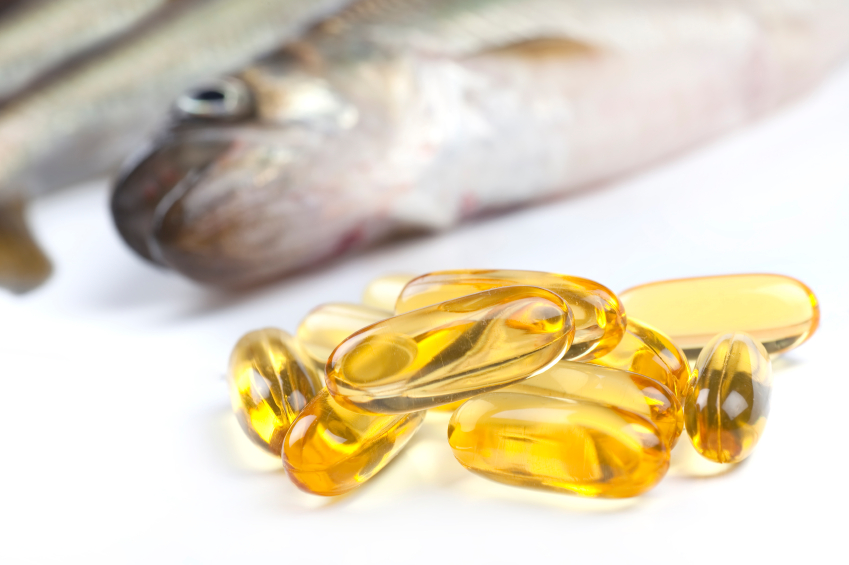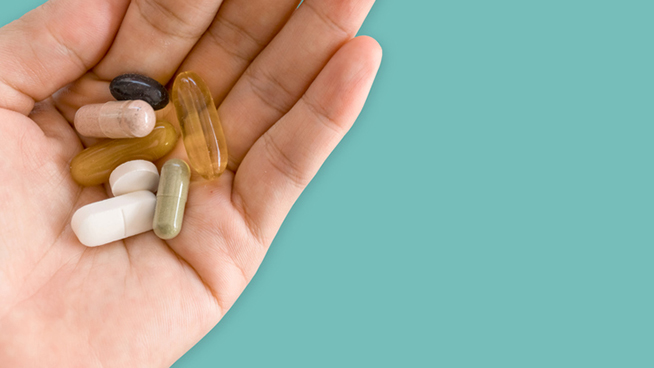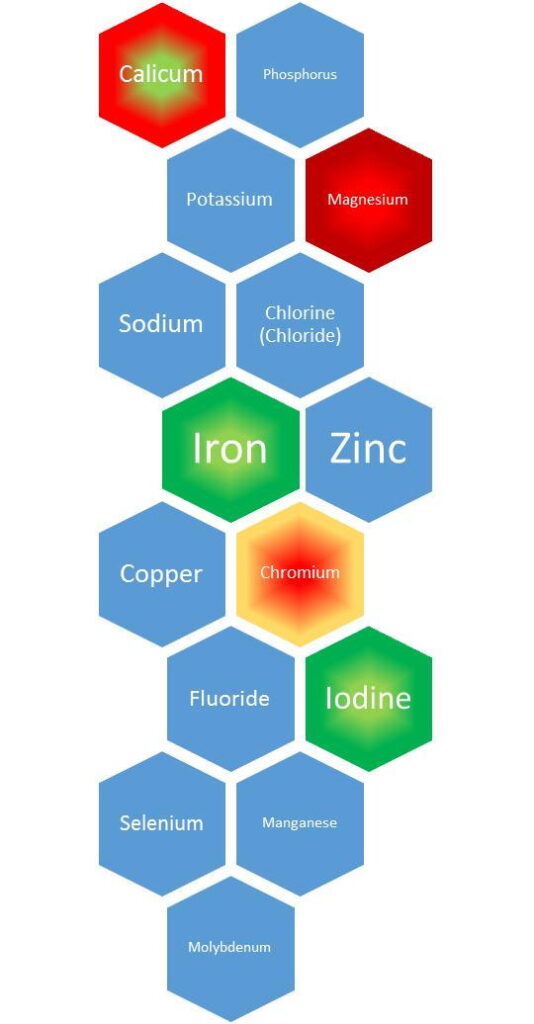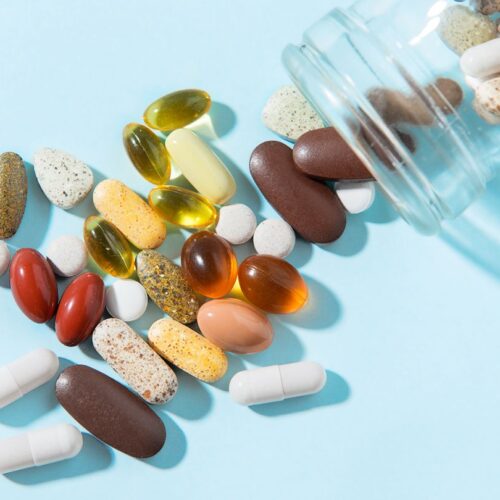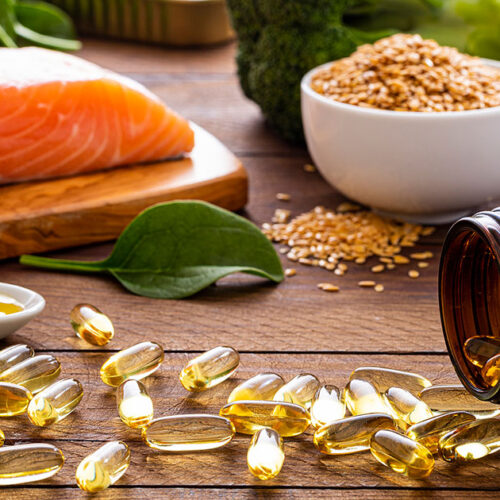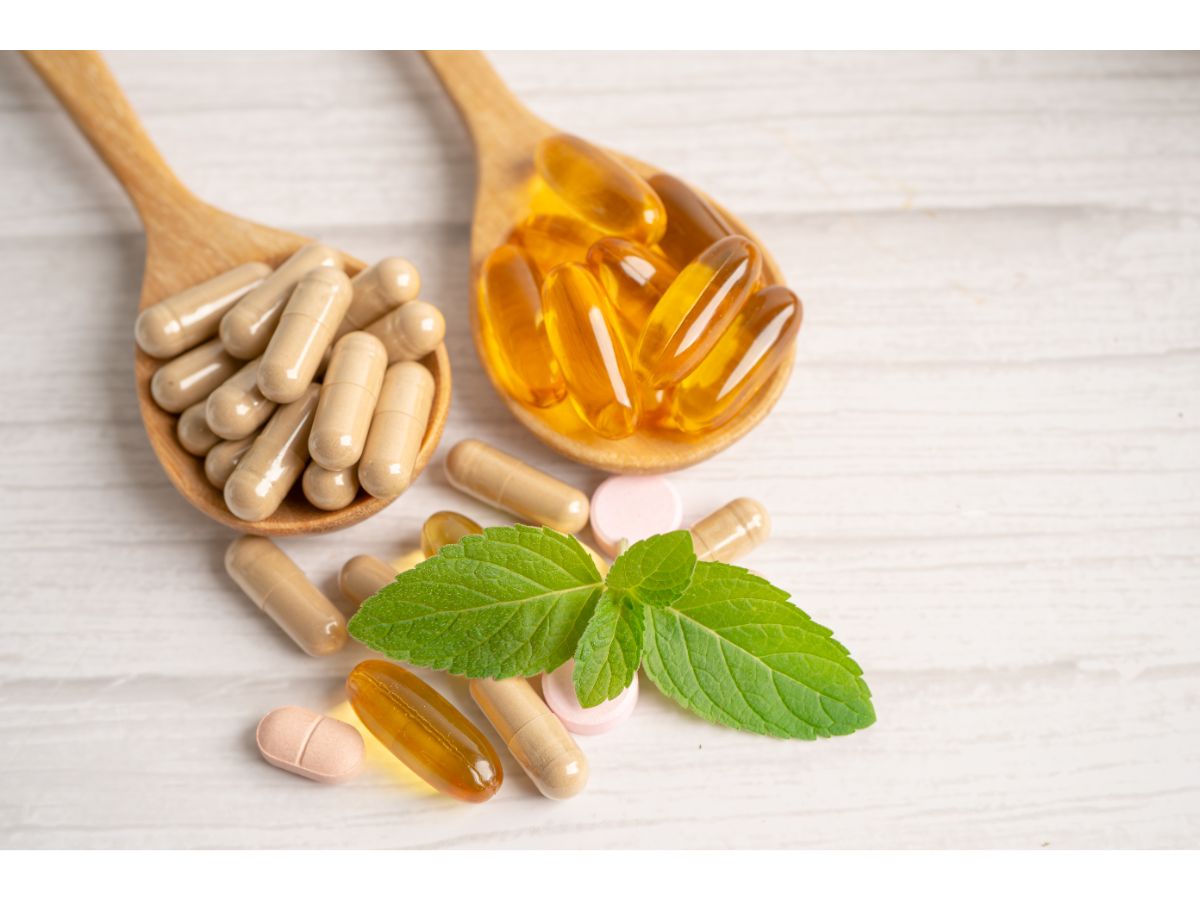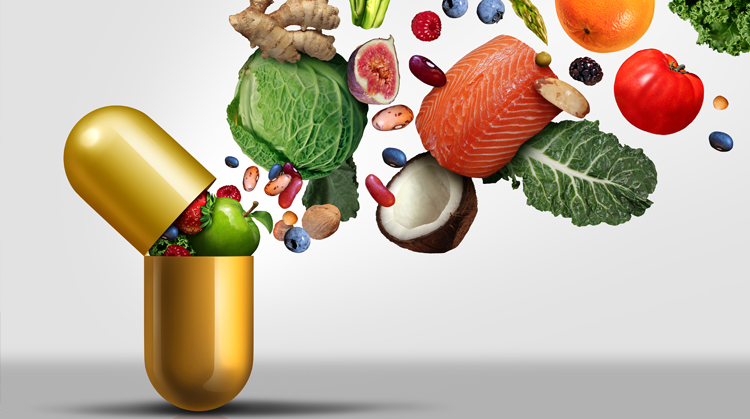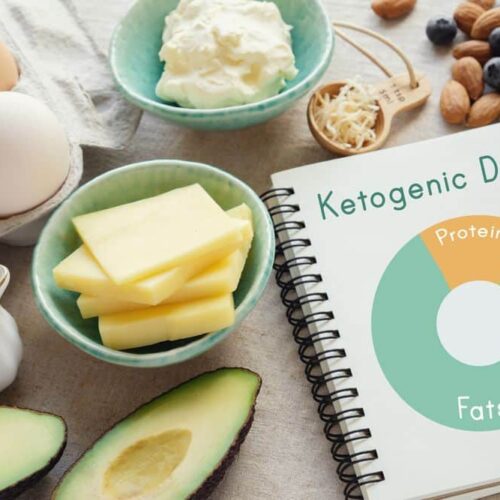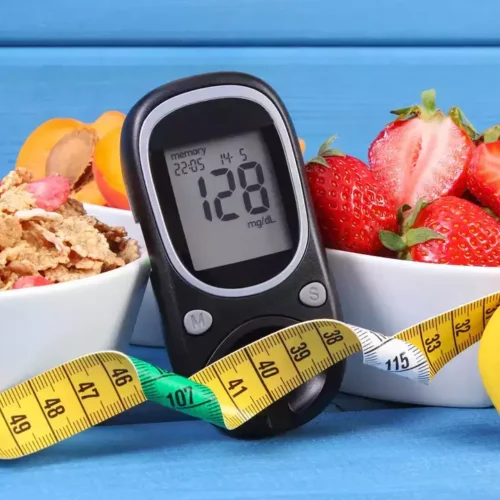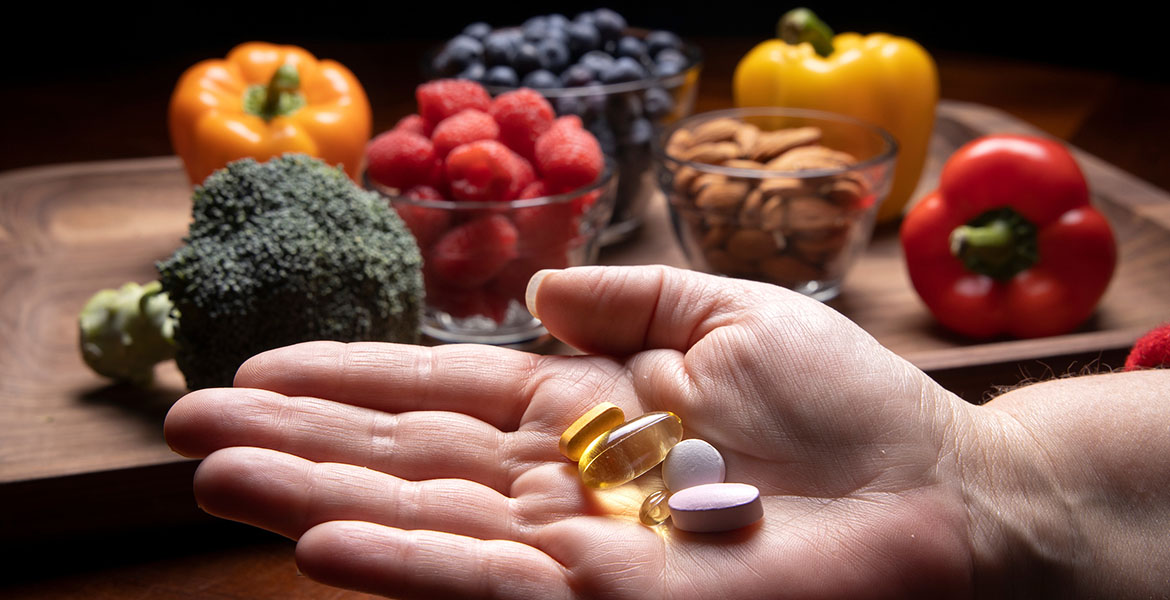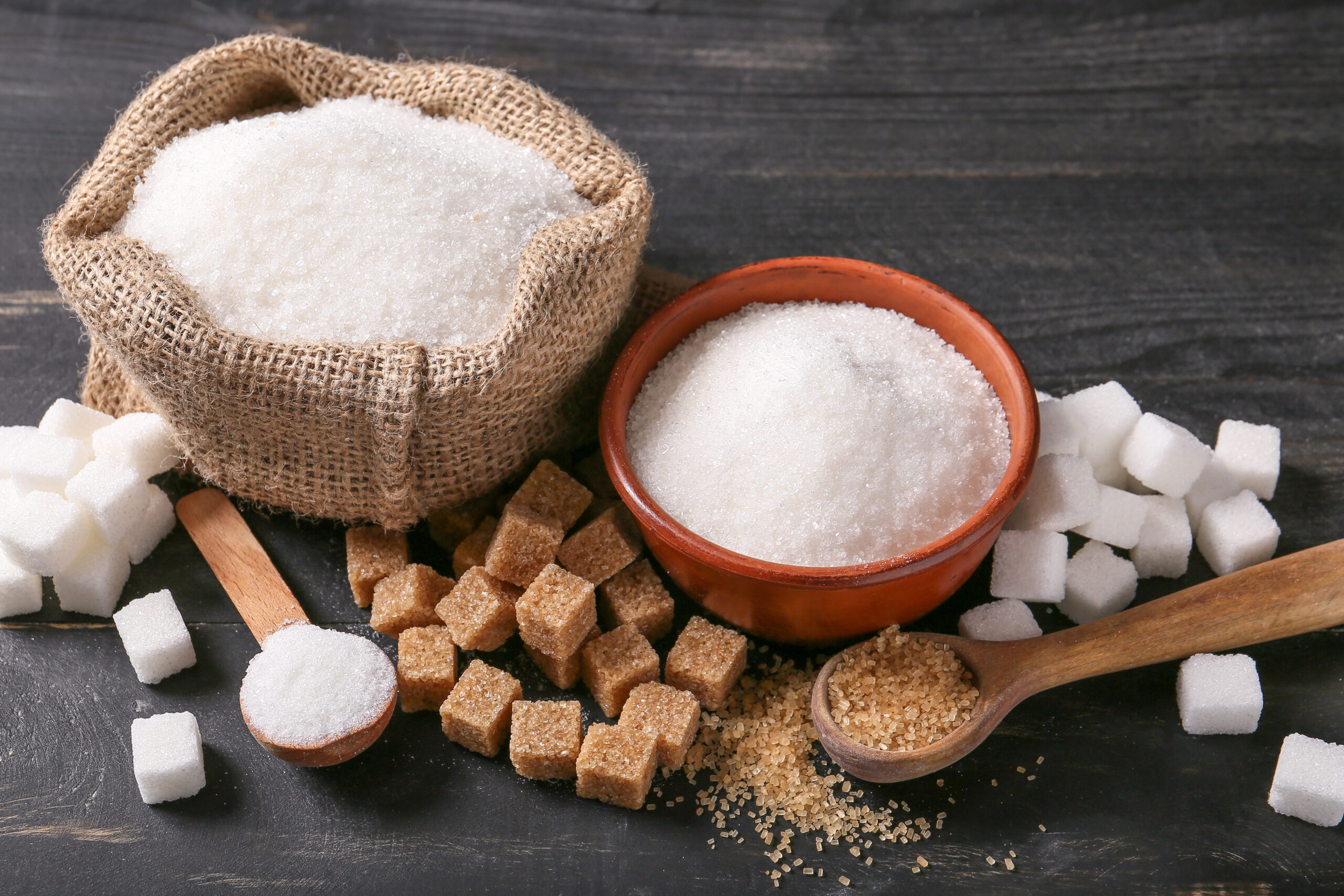If you’re looking to supplement your regular diet, you can’t go wrong with these five choices.
Creatine
Creatine is the only supplement scientifically proven to boost your strength, muscle mass, and performance. More than 500 studies published over three decades confirm that creatine is the number one supplement for everyone looking to lift more, run faster, or perform better. Even better, creatine has no documented adverse side effects.1 2
Creatine is a molecule that your body produces on its own and that you also find in food, mainly animal-based protein sources like meat and fish. If you want the performance boost creatine can give you, you need a more concentrated form, like a creatine supplement.
By taking 3–5 grams of creatine per day, you gradually fill up your muscle cells with creatine, or rather a form of creatine called creatine phosphate. That allows them to produce more of a molecule called adenosine triphosphate or ATP for short. ATP is the primary energy source for almost all the cells in your body. The more ATP you can produce, the better you perform. And that’s where creatine supplements come in by increasing your ATP production and thus your performance. A common way to take creatine is to start with 20 grams a day for a week, then lowering the dose to 3–5 grams per day. You can skip the loading phase of 20 grams a day if you want. You’ll get the same benefits without it. It’ll just take a few weeks longer.
You gain more strength from your training with creatine than without it. And if you get stronger, you gain more muscle as well. At least if you are one of the around 80 % of the population that respond to creatine. If you try supplementing with creatine and notice no performance gains at all, you probably belong to the other 20 %, the so-called non-responders. That’s not as bad as it sounds because it most likely means that you already have enough creatine in your muscles naturally that you don’t benefit from even more.
There are many different forms of creatine supplements on the market, but the original is still the best: creatine monohydrate. It’s the least expensive type of creatine and the one with superior scientific support.
Protein Supplements
Protein supplements are simply food protein in dry form. There are many different forms of protein supplements to choose from, from milk proteins like whey and casein to egg and beef protein powder and various plant-based proteins, including soy, pea, hemp, or blends of different vegetable proteins.
A protein supplement is excellent for convenience, but don’t expect to gain muscle and strength from the supplement itself. Protein powders don’t build any more muscle than the same amount of protein from regular food.
So why are protein supplements on this list? It’s a legitimate question.
Because using a protein supplement is an easy, convenient, and often cheap way to increase your protein intake. And more protein builds more muscle. When it comes to protein, the total amount you eat or drink is, by far, the determining factor for your gains. Details like timing, distribution, and source of the protein are far less critical.
The more protein you eat, the more you support your efforts to gain muscle mass and become stronger. Up until a point, of course. According to current scientific evidence, that point is somewhere between 1.6 and 2.2 grams of protein per kilogram of body weight per day or 0.7 to 1 gram per lbs of body weight per day. If you eat even more protein, it won’t harm you, but you won’t get better results from your training either.3
And that’s where protein supplements can help. Sure, you can eat all that protein from regular foods. But if you don’t want to or find it hard to eat that much, getting some of it from an easy-to-drink supplement is a great way to boost your daily protein intake.
Vitamin D
Vitamin D is often called the sunlight vitamin because your body can make vitamin D in the skin just by being out and about in the sun. If you get enough sunlight, at least during the summer months, you wouldn’t need any dietary vitamin D at all, neither from food nor supplements.
In practice, though, most of us need to get vitamin D from what we put into our mouths. Unfortunately, we often don’t get enough from it without a supplement. Vitamin D is an essential, fat-soluble vitamin you need to keep your skeleton strong and absorb calcium. It also plays a critical role in normal muscle function.
While vitamin D is vital for your muscles to function correctly, you shouldn’t expect any noticeable benefits in the gym from adding a vitamin D supplement. Observational research associates high levels of vitamin D with stronger muscles, but controlled studies are often low-quality and without confirmed cause-and-effect. A recent meta-analysis found an association between vitamin D supplementation and strength, though.4
Making sure you are not vitamin D-deficient is more critical for health reasons than for immediate training benefits. Of course, if your health is less than optimal, your training will suffer in the long run as well.
Getting enough vitamin D from a regular diet can be a struggle. So much of a struggle that almost half the population of the US is vitamin D deficient.5 There aren’t that many good food sources of vitamin D. Fatty fish, egg yolks, liver, and especially cod liver oil are good sources, but most of us don’t eat nearly enough to cover our vitamin D needs. Fruits, nuts, and other plant-based foods are downright poor sources. That’s why many common foods like milk, butter, and cereals, come fortified with vitamin D. But it’s still not enough for many people.
If you suspect your intake of vitamin D is less than optimal, consider supplementing with 2–4,000 IU (International Units) daily, particularly during the winter half of the year, or if you’re not out and about in the sun much. If nothing else, it’s a reasonable precaution to avoid walking around with inadequate vitamin D levels. Symptoms of vitamin D inadequacy or even mild deficiency can be vague if they even make themselves known at all. Better safe than sorry, especially since there are no known side effects to those doses.
Caffeine
Are you looking for a pick-me-up and a performance boost? Look no further than to caffeine, the most popular drug in the world!
Billions of people worldwide ingest caffeine daily in coffee, tea, and caffeinated soda like Coke and Pepsi. Caffeine is also the most effective legal performance boost you can get, allowing you to perform better in almost any exercise task, including lifting weights.
Some research suggests that you get used to caffeine if you take it day in and day out, developing tolerance over time.6 Other studies have failed to find any signs of habituation. You might want to consider saving the caffeine for workouts where you really need the energy boost, just in case. Days when you know you should hit the weights, but you’d rather go home and watch TV instead. That way, you make sure you get max effect from the caffeine when you need it.
Doses in the range of 3–6 mg of caffeine per kilogram of body weight about an hour before a training session is a tried-and-true supplement protocol for a significant performance boost.7 If you weigh 80 kilograms (176 lbs), that would mean 240 to 480 mg of caffeine pre-workout. A recent study demonstrated a benefit from 9 mg of caffeine per kilogram of bodyweight before a heavy squat workout.8 However, keep in mind that those dosages increase the risk of side effects like nausea.
Omega-3 Supplements
Omega-3 are polyunsaturated fatty acids you need for many essential functions in your body. The three omega-3 fatty acids help you control your blood pressure, keep inflammation in your body in check, and maintain your cell structure.
There are three primary omega-3 fatty acids: ALA, EPA, and DHA. Of these, ALA is the easiest to get. You find ALA in nuts and seeds. The other two, EPA and DHA, are the crucial ones regarding health effects, and you mainly get those from fatty fish like salmon and mackerel. Or from supplements, if you can’t or don’t want to eat a lot of fish.
Your body can convert ALA into EPA and then into DHA, but that process is very ineffective, and you end up with too little EPA and DHA to make a difference.
Your muscles also benefit from omega-3. Some studies even show that omega-3 fat increases your muscle protein synthesis if you add it to a meal, including your post-workout meal or shake.9 That is especially apparent in the elderly. Does this mean that you build more muscle if you supplement with omega-3? Possibly, but the available research is of low quality, making it hard to draw any conclusions.
Omega-3 is on this list because of its health benefits. If it helps you gain muscle and strength, consider it a bonus. But don’t expect any miracles in that department.
If you don’t eat fatty fish often, you might want to consider a supplement.
Athletes looking for an anti-inflammatory effect and maximizing health benefits should aim for 1 to 2 grams of EPA and DHA combined, with a 2:1 ratio between EPA and DHA.10
Studies suggesting a benefit from supplementing with omega-3 for strength and muscle mass use daily dosages between 2–4 grams of EPA and DHA combined.
It might be worth paying a little more for a supplement with a documented high quality. Cheap and generic omega-3 supplements tend to spoil quickly and go rancid. If that happens, they do more harm than good.

